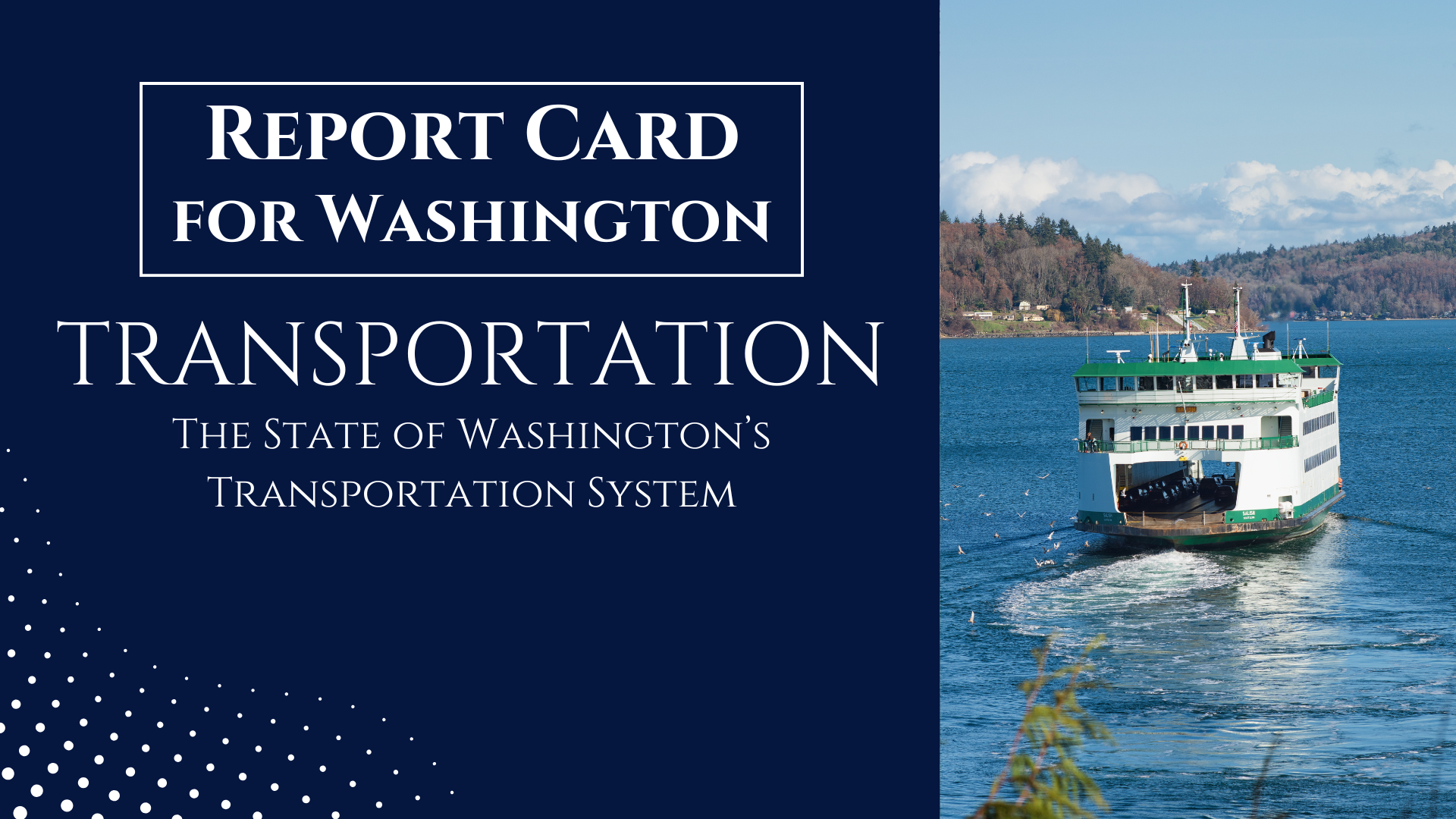Related Articles
Relevant Topics
Senate Bill 6606, which received a hearing in the Senate Transportation Committee this week, would replace the repealed 1999 vehicle depreciation schedule Sound Transit currently uses, which overvalues cars and gets the agency maximum tax revenue, with the newer 2006 schedule in state law. This would apply to the entire 1.1 percent motor vehicle excise tax (MVET) – more commonly known as the car-tab tax. The bill would amend the schedule for older vehicles (in service years 12 through 15) to look more like the 1999 schedule. It would also allow people to pay the car tab tax bill in quarterly or monthly payments and use an existing balance in their Good to Go! account if they wish.
This legislation could be good policy, but it has a few major flaws.
- The bill does not provide retroactive refunds to people for tax overcharges they’ve paid since 2017. It obviously should. Without refunds, the state would be admitting the payments were unfair but would simply be telling people, “tough luck.”
- The bill provides for some offsets to help Sound Transit, which doesn’t need the help. The agency is set to bring in a couple billion in revenue than it projected it would and can make up the lost revenue without new funding.
- The sponsor protects the bill from being ruled as unconstitutional in the future by providing that if I-976 is upheld in court, then parts of I-976 impacting the Sound Transit MVET would be repealed anyway.
The third flaw is not getting the attention it deserves.
Initiative 976 passed and is codified in law. However, it has been temporarily blocked from going into effect, so, in practice, people are continuing to pay high car tab taxes.
Senate Bill 6606 amends the MVET Sound Transit imposes. I-976 repeals that MVET and gives people greater car tab relief.
To rectify that conflict and protect SB 6606, the bill eliminates the parts of I-976 that repeal the outdated MVET schedule, as well as sections that repeal Sound Transit’s authority to impose an MVET. The bill language provides that even if I-976 is upheld in court as constitutional, its provisions that repeal MVET are repealed anyway. This would allow SB 6606 to prevail, but taxpayers would lose out on the greater relief I-976 offers.
As currently written, lawmakers who support the bill to give people car tab relief would also have to support repealing parts of Initiative 976, which represents the will of voters. The bill is essentially a hedge. Taxpayers would receive some guaranteed relief, but not all the relief they voted for in I-976. To do that, however, the bill mingles changes to existing policy with changes to an initiative, which would require a two-thirds vote from legislators.
To make this more complicated, there is some question as to whether this bill amends the paused initative or the existing MVET everyone is still paying. If it amends existing MVET, the language repealing parts of I-976 should be removed, retroactive refunds should be added, and the bill would require only a simple majority to pass.
The fact that the bill does not provide any retroactive credit and offsets losses to Sound Transit, as well as the inclusion of the language about I-976, the sponsor has (intentionally or unintentionally) guaranteed it will fail. The language about I-976 in particular makes it politically impossible for the bill to pass with two-thirds support. It’s dead on arrival.
If lawmakers are serious about advancing car tab relief and protecting taxpayers, rather than simply protecting Sound Transit, they should evaluate:
- Is amending the initiative in the same bill legally necessary for its passage – could it pass with a simple majority?
- If it can pass with a simple majority, the language repealing parts of I-976 should be removed.
- If it must pass with two-thirds supermajority support, there needs to be a serious discussion about retroactive refunds, and the fundamentally backwards proposition that Sound Transit should be reimbursed for any car tab tax cuts with other tax revenue. Sound Transit officials made the choice to use dishonest taxing practices, and balance their budget based on unfair tax overcharges. To now complain that the legislature must make them whole as a condition to fix that unfair system is shockingly tone deaf.






